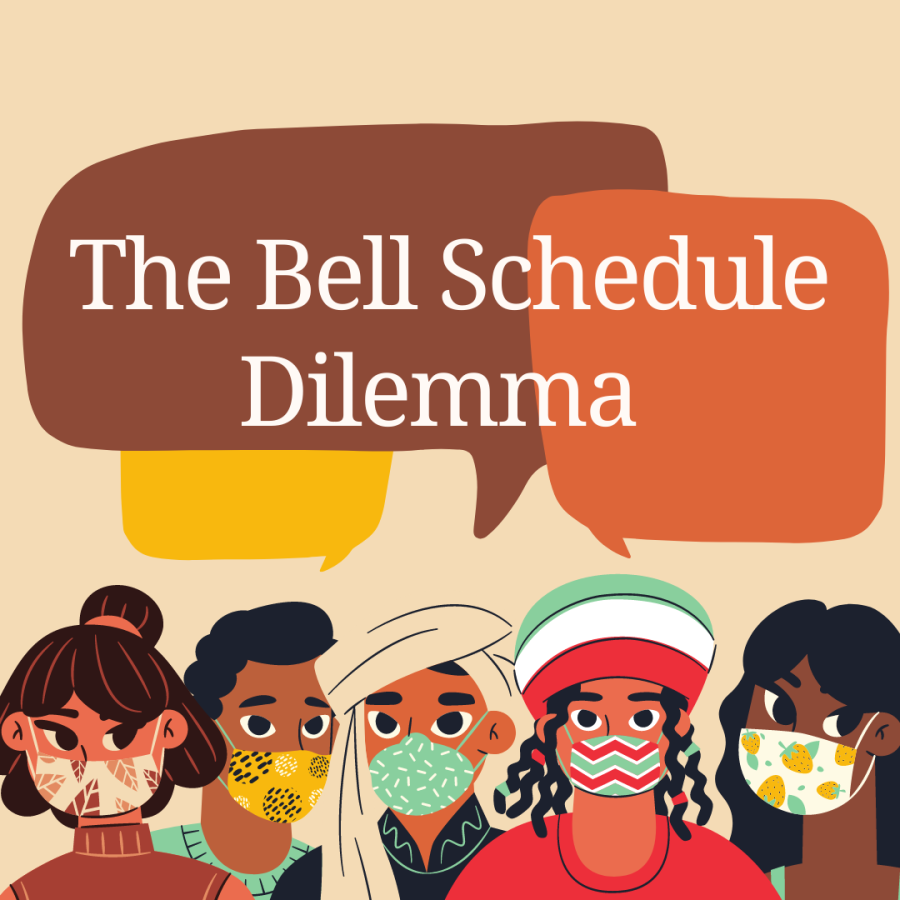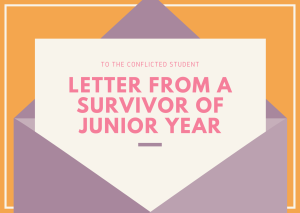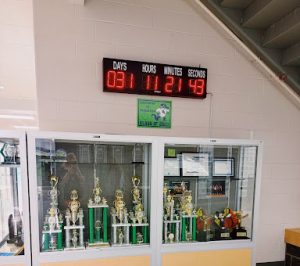The Bell Schedule Dilemma
The short connectivity and 40 minute lunch have created various consequences for certain populations of students.
November 9, 2021
After nearly two years of virtual learning, many students and staff have inevitably grown and changed as people. In the span of three years, Green Level High School itself has gone through an opening year, the Covid-19 pandemic, hybrid learning, and now a fully masked school. Accordingly, the school has doubled in students and faculty and administration has had to alter schedules and policies. But throughout all the chaos, students have voiced frustration about the lack of acknowledgement of the transition period.
Many students still haven’t seen or had the opportunity to talk to many of their friends. If students are not able to match lunch or class schedules with friends, then it becomes very difficult to maintain connectedness and authentic relationships. Especially for those who are busy with things from difficult coursework and college applications after school to activities ranging from shifts at work to band competitions on weekends, there remains almost no time for friends to see one another.
Consequently, the bell schedule has perpetuated feelings of isolation for the students returning to in-person learning. Clubs are supposed to allow you to connect with others who have shared interests, but it took an entire quarter for clubs to host their first meetings.
Asian American Club’s first meeting was not supposed to happen until November 16th due to problems with Alltimely and advisory replacements. Abby Lu, AAC President, described, “It was extremely disappointing to have something that you’ve had planned for so long delayed over and over.” Even if clubs have been able to meet, time is limited, “I really wish connectivity was longer. There’s not much you can do in 25 minutes, and many members cannot participate in outside activities after school hours, so the club becomes exclusive rather than inclusive. That’s the opposite of the Green Level Vision,” Lu continues.
The trouble of 25 minutes is not limited to AAC: Sonali Ratnasinghe, Environmental Club Recycling Chair, describes her own difficulties, “I can’t gather students together before or after school due to bus routes, extracurriculars, and other commitments. I used to be able to do it [recycling] during lunch, but with two lunch periods, I can’t do that either.”
Justin Viens, the Assistant Principal Intern, is one of the administrators who helped to create the current schedule and acknowledges these difficulties, but explains that connectivity time is limited due to earlier feedback from students about extending lunch, “Everything that we are going to be doing is going to be in the interest of the students, it’s not to make administrations’ life easier, it’s not to make my life easier, it’s to do what’s best for students.”
In response, many students have suggested the SMART lunch schedule that has already been implemented at the neighboring schools of Green Hope and Panther Creek. This schedule not only allows for more flexible club meetings, but also lengthens the amount of time for students who complain about off-campus lunch and the lunch line. Most of all, it would provide a time for friends to see each other after two years of separation.
The administration has considered this suggestion as well, but Viens noted that some of the main concerns of having one lunch included spacing concerns, the safety hazards of 600 students going off campus, and teachers having to give up their own lunch to supervise students. He also explained how Mrs. Summers’ vision aligns with the inclusion of “Gator Time”, “Lunch should be a time where students can be students.” The principal emphasizes how kids should not have, “To worry about going to make up a test or doing makeup work or doing a study hall, it [lunch] is time for you to socialize with your friends and have a good time and decompress in the middle of the day.”*
The complexity of creating a schedule which can satisfy district requirements, administration visions, and the mental health of students and teachers is by no means an easy task. But the mental well being of the 1950+ students within the school needs to be more highly balanced in this scale of consideration.
*There is no policy against teachers assigning makeup tests or work during lunch.







